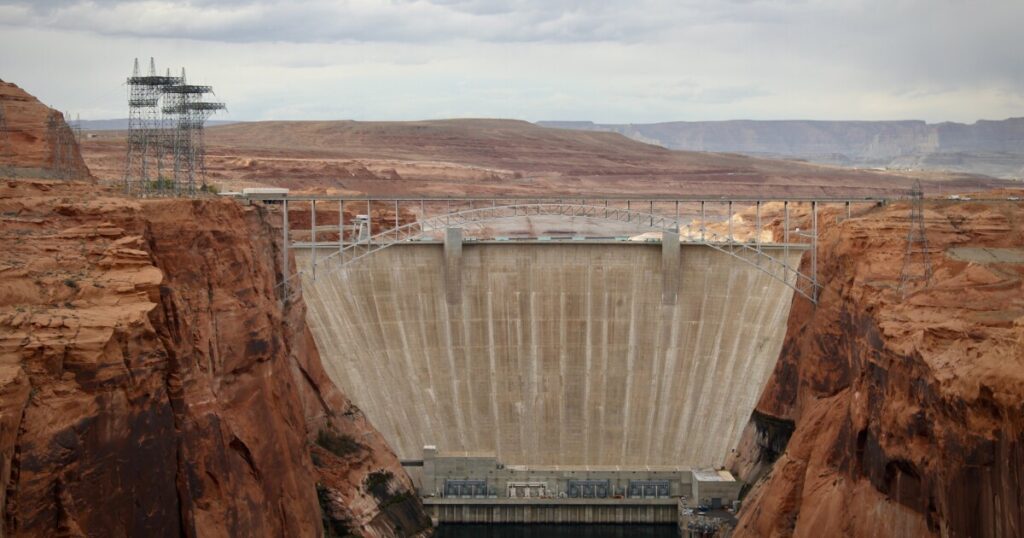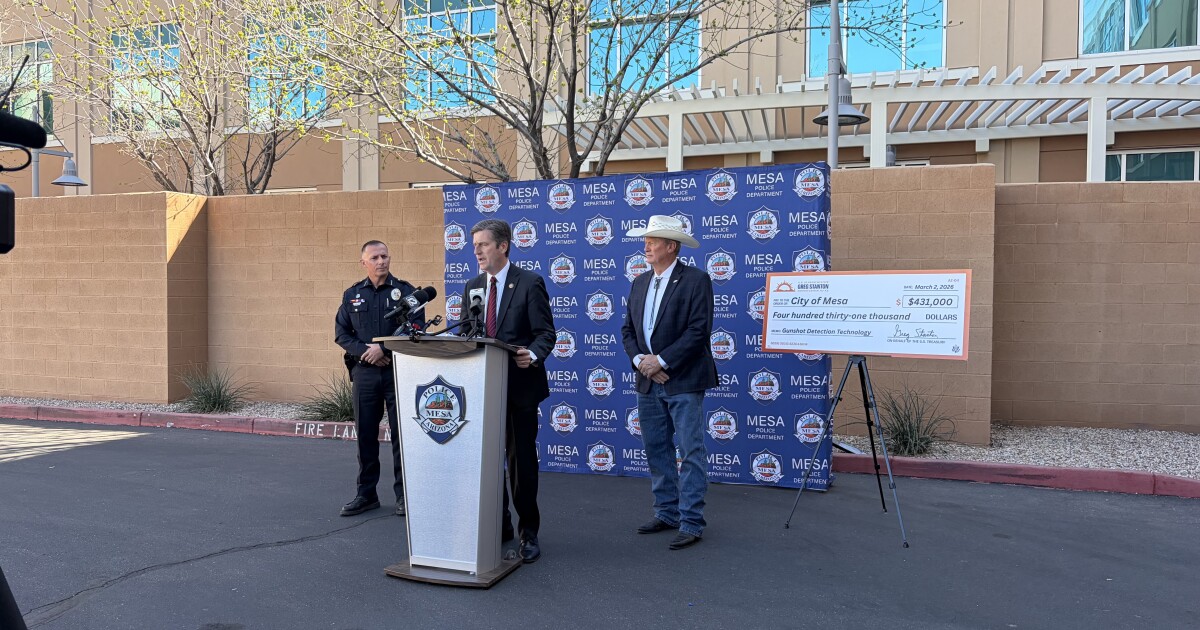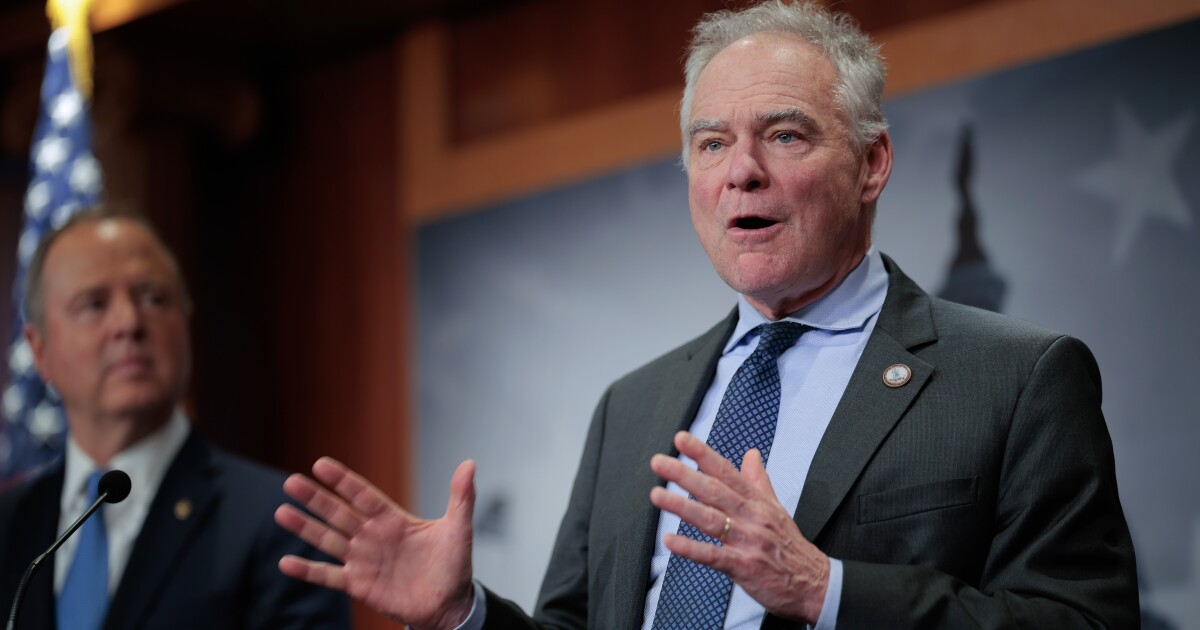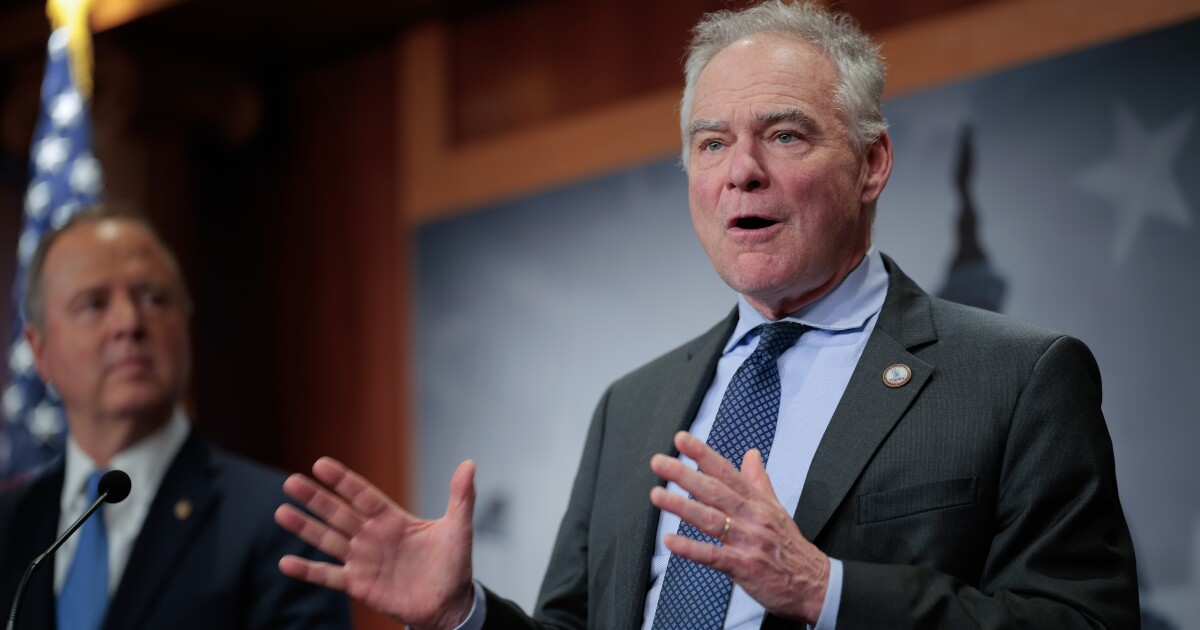Colorado River States Struggle to Reach Water Sharing Agreement
In a critical meeting, Arizona and six other states reliant on the Colorado River have yet to strike a deal on how to share the river’s dwindling water supply, despite a federal deadline set for Tuesday. The Department of the Interior, which imposed the deadline, has decided to delay imposing its solution to the impasse.
A combined statement from state and federal representatives highlighted “collective progress” towards a resolution, suggesting the ongoing efforts “warrant continued efforts to define and approve details for a finalized agreement.” This comes after Arizona Governor Katie Hobbs expressed skepticism about a voluntary agreement among the Lower Basin states (Arizona, Nevada, and California) and the Upper Basin states (Utah, Colorado, New Mexico, and Wyoming).
Governor Hobbs suggested federal intervention might be necessary. “The Upper Basin, really being led by Colorado, has refused to budget at all and refused to take any cuts,” Hobbs criticized, emphasizing that a scenario where all reductions fall solely on Arizona would be “not acceptable.”
As the meeting concluded, Hobbs sent a letter to Interior Secretary Doug Burgum, accusing the Upper Basin states of not honoring water conservation commitments. The letter, co-signed by bipartisan leaders from Arizona’s legislature, urged Burgum to ensure any federally imposed solution includes “measurable and enforceable conservation requirements for the Upper Basin.”
The root of the issue lies in the Colorado River’s diminished flow, significantly less than the amount available when water was first allocated among the states in 1922. While the Lower Basin states have adjusted their allocations, they now demand the Upper Basin states share in future water reductions.
With the federal government hinting at implementing its own plan, the joint statement after the meeting suggested a renewed willingness among states to negotiate a voluntary agreement. “Collective progress had been made that warrants continued efforts to define and improve details for a finalized agreement,” it stated, expressing optimism for sustaining the Colorado River system’s long-term viability.
Governor Hobbs asserted Arizona’s proactive role, noting the state has conserved millions of acre-feet of water in Lake Mead and offered additional savings totaling over 500,000 acre-feet. However, she did not specify how these cuts would be distributed among residential, agricultural, and industrial users.
Hobbs acknowledged that Arizona will likely bear significant reductions, but emphasized the state’s willingness to make sacrifices, provided other states also contribute. She criticized the Upper Basin states’ negotiating stance as “extreme,” urging a cooperative approach before the year-end deadline for a new plan.
Emphasizing the broader significance of the river, Hobbs argued that the Colorado River supports not only Arizona’s economy but also a national agricultural industry crucial for winter produce. She plans to meet with Secretary Burgum to advocate for a “common sense Colorado River deal” that fairly allocates water resources.
—
Read More Arizona News










